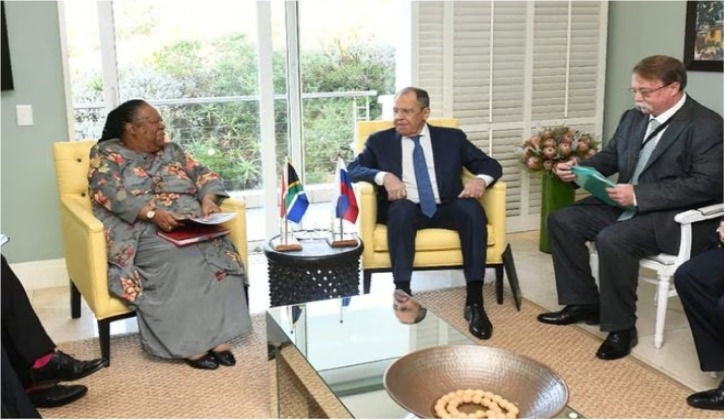
The BRICS (Brazil, Russia, India, China, South Africa) foreign ministers gathered in South Africa on Thursday, but the focus shifted to whether Russian President Vladimir Putin would face arrest if he attended the upcoming BRICS summit in Johannesburg. South Africa’s Foreign Minister, Naledi Pandor, acknowledged that the country was exploring legal options regarding Putin’s presence, as he is the subject of a war crimes arrest warrant issued by the International Criminal Court (ICC).
As a member of the ICC, South Africa would be obligated to arrest Putin if he attended the summit, sparking intense scrutiny of the issue during the initial round of talks. Pandor assured reporters that the government was currently reviewing the legal options, and the final position of South Africa would be determined by President Cyril Ramaphosa. However, she noted that invitations had already been extended to all heads of state from the BRICS countries.
Putin’s plans remained unconfirmed, with the Kremlin stating that Russia would participate at the “proper level.” The ICC had accused Putin of forcibly deporting children from Russian-occupied Ukrainian territory, an allegation that Moscow vehemently denies. South Africa had extended an invitation to Putin in January.
At the meeting in Cape Town, the foreign ministers of Brazil, Russia, India, and China discussed matters without a disclosed official agenda. Analysts suggested that the BRICS bloc aimed to establish itself as a counterweight to Western influence in the aftermath of Russia’s Ukraine invasion. Expansion of the group, including potential new members such as oil-producing countries, was also expected to be a topic of discussion.
Cobus van Staden, of the South African Institute of International Affairs, highlighted that BRICS was positioning itself as an alternative to the West and as a platform to empower emerging powers. Anil Sooklal, a senior South African official involved in the meeting’s preparations, revealed that the ministers would delve into discussions on global geopolitics and financial architecture. The status of BRICS’ New Development Bank, which halted funding projects in Russia due to sanctions compliance, would also be addressed.
BRICS has evolved from a loose, symbolic association of diverse emerging economies into a more cohesive entity in recent years. Initially driven by Beijing, the group has gained momentum from Moscow since the onset of the Ukraine conflict in February 2022. BRICS leaders have expressed openness to welcoming new members, including oil-producing nations.
Venezuela, Argentina, Iran, Algeria, Saudi Arabia, and the United Arab Emirates have either formally applied or shown interest in joining BRICS, signaling potential shifts in the petrodollar system. William Gumede, a South African political analyst specializing in BRICS, emphasized the significance of oil-producing countries joining the bloc. BRICS seeks to redefine the global power dynamics, with emerging economies playing a more prominent role.
